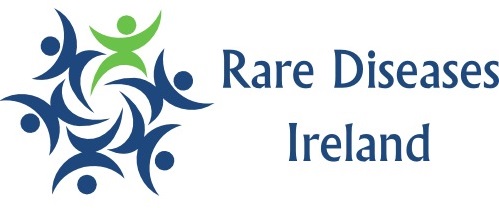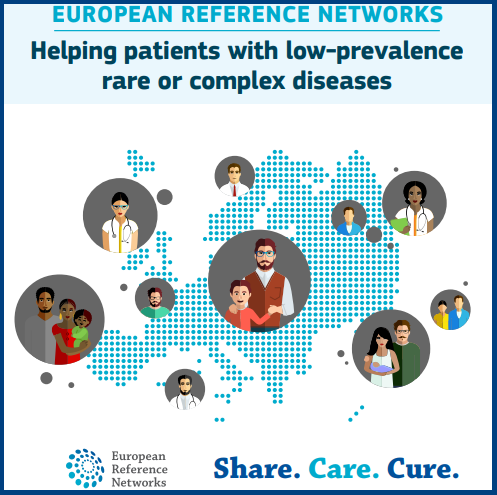A key activity for Patient Organisations in the rare diseases community in Ireland is advocacy. In order for our patients to have equitable access to the best treatments and services we must work collectively to ensure that we speak with a united voice on behalf of all our stakeholders.
Key priority areas for RDI in 2019 are:
- Timely access to genetic services.
- Integration of European Reference Networks into the HSE services.
- Timely access to novel and innovative orphan medicines.
- Provision of appropraite and adequate community based services across Ireland.
Evidence-based policy equals more effective policy. In order to advocate for rare disease patients, we rely upon data gathered from the rare disease community to support out position. Ideally we would have local data gathered on a national basis. However collecting such data can be expensive and time consuming. We therefore rely upon 3rd party sources to support much of our work.
EURORDIS, via its Rare Barometer program provides an excellent source of data. Likewise peer-reviewed published literature is an important source of unbiased data.
If you have any questions about data sources and data collection or if you have collected data that you would like share, please contact us at advocacy@rdi.ie
Education
Patients are experts on their diseases and have a valuable contribution to make to shaping meaningful rare disease research, policies and services. To empower patients to make this valuable contribution, EURORDIS, via its Open Academy, provides specialist training that ensures they have the confidence and knowledge needed to bring their expertise to discussions on health care, research and medicines development with policy makers, industry and scientists. The goal of the Open Academy is to build the capacity of rare disease patient advocates at large, as well as a select number of researchers and clinicians, so that they can go on to advocate for rare diseases at both local or international levels.
EURORDIS also provides the link between training alumni and organisations such as the European Medicines Agency (EMA), where trained patients actively engage in many activities including scientific advice.
The EURORDIS Open Academy encompasses the EURORDIS Summer School, EURORDIS Winter School, EURORDIS Digital School and ePAG Capacity-Building Programme.
There are also a number of free online modules available. Topics include:
- Medical research
- Ethics
- The regulatory framework
- The European Medicines Agency (EMA)
- Benefit-risk assessment and pharmacovigilance
- Market access
Rare Diseases in Ireland – 2018 & beyond
The first Rare Disease Plan for Ireland is coming to an end. It is vital that we all learn from our experiences to date to ensure that the next plan is developed with the patient experience as a key central focus for all. If you are in a position to provide feedback, please contact us advocacy@rdi.ie
The first Rare Disease Plan for Ireland is coming to an end. It is vital that we all learn from our experiences to date to ensure that the next plan is developed with the patient experience as a key central focus for all. If you are in a position to provide feedback, please contact us advocacy@rdi.ie
A Home for ALL Rare Diseases – ERNs
The establishment of the European Reference Networks (ERNs) represents a game changer in the care of rare disease patients across Europe. It can be a challenge to provide highly specialised treatment or care for patients who have complex conditions. This is especially true when the prevalence of such conditions is low, as is the case for rare diseases, there is a scarcity of expertise and affected patients are geographically scattered, sometimes in isolated locations where expertise does not exist or cannot be accessed.
European Reference Networks (ERNs) create a clear governance structure for knowledge sharing and care coordination across the EU to improve access to diagnosis and treatment, as well as the provision of high-quality healthcare for patients. They are networks of centres of expertise and healthcare providers that are organised across borders. No longer is your multi-disciplinary care team made up of individuals from your hospital; it is instead made up of individuals from across Europe with expertise in your particular disease.
As it is not possible to create a separate ERN for the over 6,000 recognised rare diseases, ERNs have been organised according to disease groupings. There are 24 individual ERNs designed to improve access to diagnosis, care pathways and treatment, develop registries to improve understanding of natural history, and undertake research and clinical trials for the provision of high-quality healthcare for all rare disease patients. ERNs bring added value, with the most recent and expert knowledge being used to make decisions on treatment and care pathways thereby contributing to improvements in clinical outcomes as well as the development of Models of Care!
The first 24 ERNs were launched on March 1, 2017, involving more than 900 highly-specialised healthcare units from over 300 hospitals in 26 Member States.
On October 23, 2018, 18 months following the launch of ERNs, we learn about progress made and activity in Ireland.
Putting the Patient at the Centre
The European Patient Advocacy Groups (ePAGs) were set up by EURORDIS to ensure the patient voice is present in the development of the European Reference Networks (ERNs).
EURORDIS has established a European Patient Advocacy Group (ePAG) for each ERN disease grouping. Patient organisations can become ePAG members and implementing an ePAG leadership capacity-building programme, to empower ePAG patient representatives with the knowledge and skills they need to be able to effectively participate in ERN activities. RDI is working closely with EURORDIS to ensure that its members are involved in this key policy development and that they have the opportunity to develop ePAGs at Irish HCPs who are or will become members of an ERNs.
EURORDIS runs the ePAG Capacity-Building Programme for the 200+ ePAG representatives, with a focus on three levels:
- ePAG representatives who voice the views of their ePAG’s wider membership to their respective ERN Board;
- ePAG representatives involved in ERN topic groups; and
- All 200+ ePAG representatives who are involved in the 24 ERNs.
For more information please contact lenja.wiehe@eurordis.org.

